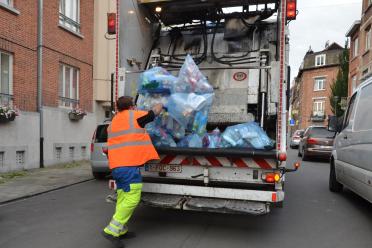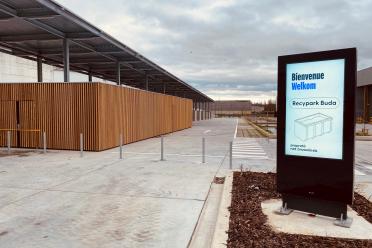
Public cleaning operators
Cleanliness concerns us all
Our well-being depends heavily on the cleanliness of public spaces. If uncleanliness breeds uncleanliness, clean streets provide a feeling of well-being and safety.
Cleaning programmes run by Bruxelles-Propreté and municipalities cannot alone guarantee a clean and pleasant city. Those using public spaces (residents, commuters, tourists, etc.) must first take action.
COMMITMENT AS A CITIZEN
Simple steps to adopt daily
If you observe these simple steps on a daily basis, it increases the efficiency of the work carried out by Bruxelles-Propreté and the municipalities :
- Put out your bags or containers at the appropriate days and times to put out your bags.
- Clean your own pavement (and shovel snow in winter) and pick whatever you have swept to avoid cluttering the gutters and blocking the drains.
- Do not throw your waste on the street, near bottle banks or by public litter bins.
- Small waste: use public litter bins or thrown them at home..
- Large waste (bulky items, construction waste, etc.): use the services at your disposal
Heavy fines for fly-tipping
- Only use public litter bins to throw small waste items, do not use them to throw your household waste
- Do not place your glass bottles, jars and phials by the bottle banks, even if they are full (more than 560 bottle banks sites are at your disposal)
- Use spaces or bags intended for your pet's waste.
- Increase the awareness of your children and of those around you regarding respect for public spaces


